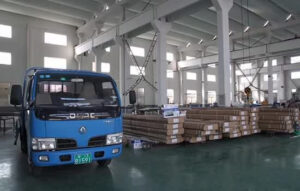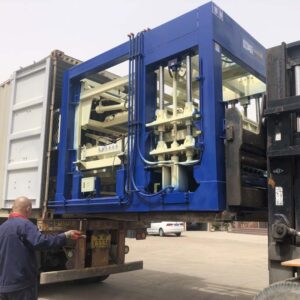In the rapidly evolving industrial landscape of Cameroon, the emergence of fully automated production machines has revolutionized manufacturing processes and efficiency. These machines, powered by advanced technology, have transformed traditional manufacturing practices, leading to increased productivity, cost savings, and improved product quality. The application market for these machines is vast and diverse, spanning multiple industries and sectors across Cameroon.

Firstly, the automotive industry is one of the primary beneficiaries of fully automated production machines. Cameroon’s automotive sector has witnessed significant growth in recent years, with increasing demand for both domestic and exported vehicles. Automated machines play a crucial role in the assembly and production of automobiles, ensuring precision and consistency in every component. From the assembly of engines and transmissions to the fitting of exterior parts, these machines operate with pinpoint accuracy, reducing human error and enhancing overall production efficiency.
The Application Market for Fully Automated Production Machines in Cameroon
Moreover, the electronics industry has also been a key driver in the demand for fully automated production machines. Cameroon’s electronics sector is booming, with a growing number of local and international companies setting up manufacturing facilities. These machines are essential for the production of electronic components and devices, such as smartphones, televisions, and computers. Their precision and speed enable manufacturers to produce high-quality products at a faster rate, meeting the demands of a rapidly expanding market.
The food and beverage industry is another significant market for fully automated production machines. Cameroon’s rich agricultural resources provide ample opportunities for food processing and packaging. Automated machines are used in various stages of food production, from processing raw materials to packaging and labeling finished products. These machines not only increase production speed but also ensure hygiene and safety standards are met, crucial factors in the food industry.
In addition, the textile and clothing industry has also begun to adopt fully automated production machines. Cameroon’s textile sector has a long history and continues to be an important contributor to the economy. Automated machines have revolutionized the production of fabrics and clothing, enabling manufacturers to produce a wider range of products with improved quality and efficiency. From weaving and knitting to cutting and sewing, these machines handle complex tasks with ease, reducing labor costs and lead times.

Furthermore, the pharmaceutical industry is another key area where fully automated production machines are finding widespread application. Cameroon’s pharmaceutical sector is experiencing significant growth, with increasing demand for both local and exported drugs and medical devices. Automated machines play a vital role in the production of pharmaceuticals, ensuring strict compliance with regulatory standards and maintaining the highest levels of hygiene and sterility. These machines are also capable of handling hazardous materials safely, reducing the risk of human exposure.
Moreover, the construction industry is another important market for fully automated production machines. Cameroon’s booming construction sector demands efficient and precise manufacturing of building materials and components. Automated machines are used in the production of bricks, concrete blocks, and other building materials, ensuring consistency and quality in every product. These machines also speed up the construction process, reducing labor costs and enhancing overall project efficiency.
In addition to these industries, fully automated production machines also find application in various other sectors, such as plastics and rubber, chemicals, and even agriculture. The versatility and adaptability of these machines make them suitable for a wide range of manufacturing processes, regardless of the industry or product type.
The growth of the application market for fully automated production machines in Cameroon is also driven by factors such as government support and private sector investments. The Cameroonian government has been proactive in promoting industrialization and technology adoption, providing incentives and support to encourage manufacturers to adopt automated machines. At the same time, private sector companies are also investing in these machines to enhance their manufacturing capabilities and remain competitive in the global market.
However, it is worth noting that the widespread adoption of fully automated production machines also brings certain challenges and considerations. One of the main challenges is the initial investment cost, which can be significant for small and medium-sized enterprises. Additionally, the need for skilled personnel to operate and maintain these machines is another factor that manufacturers need to consider. However, with the increasing availability of training and support services, these challenges are gradually being overcome.
In conclusion, the application market for fully automated production machines in Cameroon is vast and diverse, with significant opportunities across multiple industries and sectors. These machines are revolutionizing manufacturing processes, leading to increased productivity, cost savings, and improved product quality. With government support and private sector investments, the demand for these machines is expected to continue to grow in the future, driving further industrialization and economic development in Cameroon.
